Imagine a world where every student has access to personalized, patient, and adaptive tutoring available 24/7. This isn’t a distant future scenario—it’s happening now with AI tutors. These intelligent systems are transforming how students learn, offering customized educational experiences that adapt to individual needs, learning styles, and pace. As educational institutions face growing demands with limited resources, AI tutors are emerging as powerful tools to enhance learning outcomes while reducing pressure on human educators.
Understanding AI Tutors: The New Educational Assistants
AI tutors are sophisticated educational tools powered by artificial intelligence that provide personalized learning experiences. Unlike static learning materials, these digital tutors can adapt to each student’s unique needs, learning pace, and preferences. They leverage advanced algorithms to analyze student performance, identify knowledge gaps, and deliver customized content to address specific areas requiring improvement.
Core Functionalities of AI Tutors
Modern AI tutors have evolved significantly from early computer-based learning systems. Today’s platforms incorporate several key technologies that make them particularly effective:
- Adaptive learning algorithms that adjust difficulty based on student performance
- Natural language processing for conversational interactions
- Data analytics to track progress and identify learning patterns
- Personalized feedback systems that provide immediate guidance
- Engagement mechanisms including gamification and interactive exercises
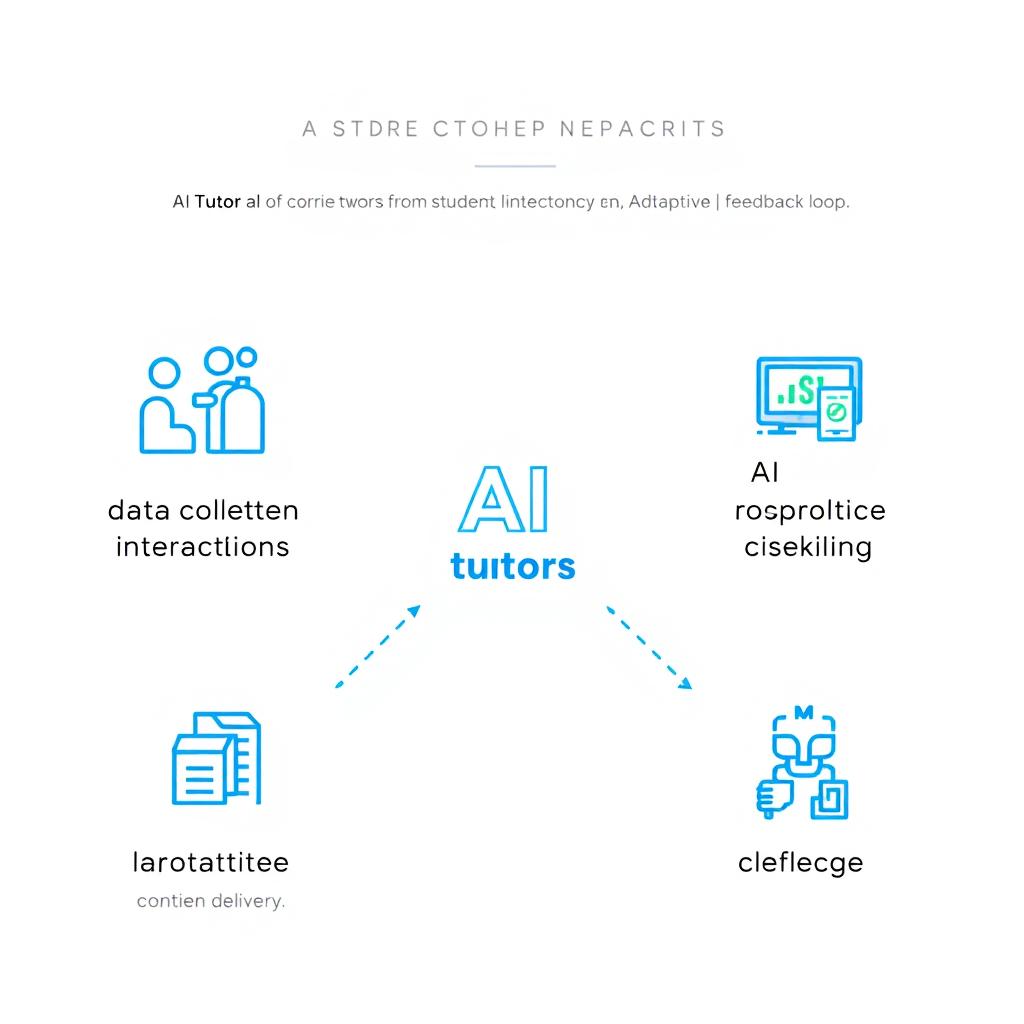
What sets modern AI tutors apart is their ability to simulate aspects of human tutoring through conversational interfaces. Students can ask questions, receive explanations, and engage in dialogue that mimics the experience of working with a human tutor—but with the advantage of unlimited patience and 24/7 availability.
Key Changes AI Tutors Are Bringing to Education
Personalized Learning Paths
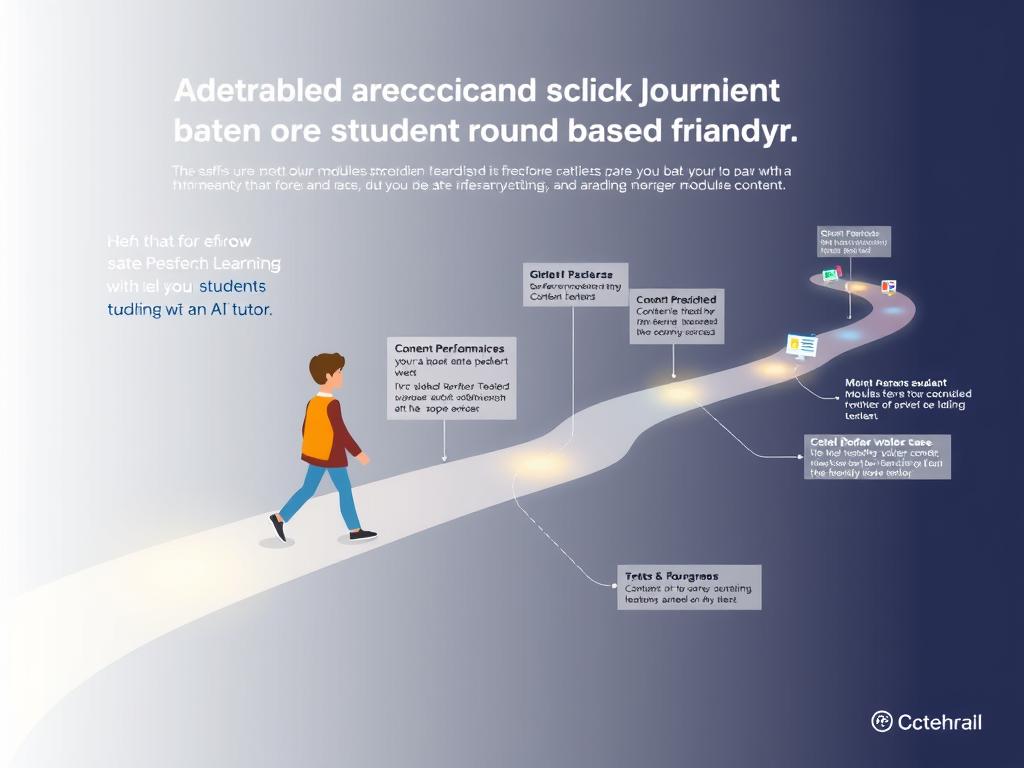
Perhaps the most significant advantage of AI tutors is their ability to create truly personalized learning experiences. Traditional classroom settings often struggle to accommodate diverse learning needs, with teachers having to balance attention across many students.
AI tutors analyze each student’s performance data to:
- Identify specific knowledge gaps and misconceptions
- Adjust content difficulty based on mastery level
- Recommend additional resources for challenging concepts
- Adapt to different learning styles (visual, auditory, reading/writing, kinesthetic)
- Provide customized practice opportunities focused on areas needing improvement
Improved Accessibility and Reach
AI tutors are dramatically expanding access to quality educational support, particularly for underserved populations. This democratization of tutoring resources is addressing longstanding inequities in educational access.
- Remote and rural students gain access to specialized tutoring previously unavailable
- 24/7 availability accommodates different schedules and time zones
- Lower cost compared to human tutors makes support more affordable
- Multilingual capabilities break down language barriers
- Accessibility features support students with different learning needs

Reducing Educator Workload
Teachers today face increasing demands on their time and attention. AI tutors are helping to alleviate this burden by automating routine tasks and providing supplemental support to students.
How AI Tutors Support Teachers
- Automated grading and assessment of routine assignments
- Detailed analytics on student performance to inform instruction
- Handling repetitive questions, freeing teachers for complex topics
- Providing additional practice opportunities without increasing grading load
- Offering supplemental explanations for students who need reinforcement
Important Considerations
- AI tutors complement rather than replace human teachers
- Critical thinking and complex problem-solving still require human guidance
- Emotional intelligence and motivation often need human connection
- Teachers should maintain oversight of AI-generated content
- Professional development needed for effective AI integration
Real-World Applications: AI Tutors in Action
Case Study: Khan Academy’s Khanmigo
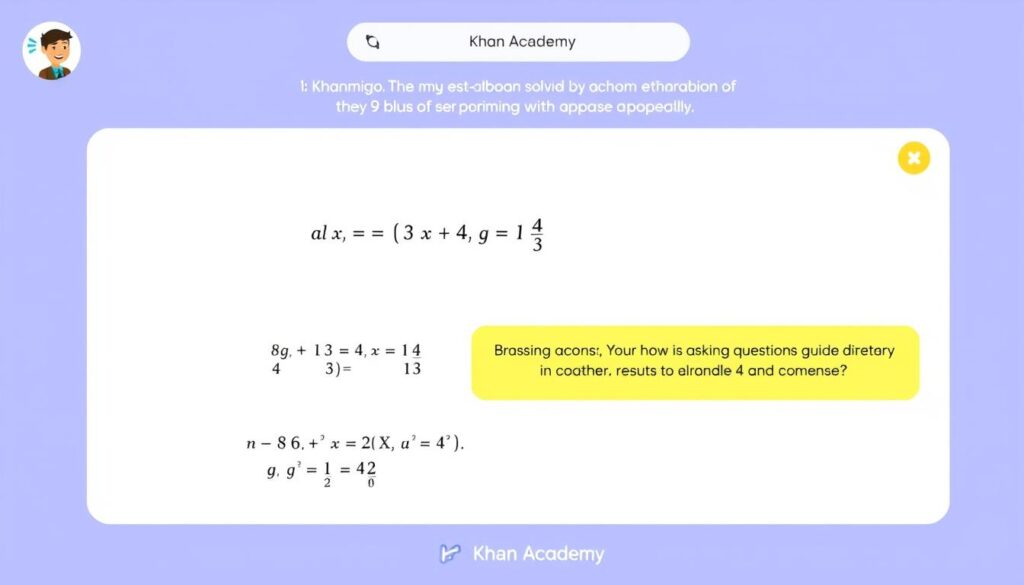
Khan Academy, a pioneer in online education, has developed Khanmigo, an AI tutor designed to provide personalized support for K-12 students. Unlike many AI systems that simply provide answers, Khanmigo focuses on guiding students through problem-solving processes.
Key features of Khanmigo include:
- Socratic questioning that encourages critical thinking
- Step-by-step guidance through complex problems
- Hints and scaffolding rather than direct answers
- Integration with Khan Academy’s extensive curriculum
- Teacher tools for monitoring student interactions and progress
In a pilot study with 900 students, those using Khanmigo showed significant improvements in problem-solving skills and demonstrated greater persistence when facing challenging concepts compared to control groups.
Case Study: Duolingo’s Language Learning AI
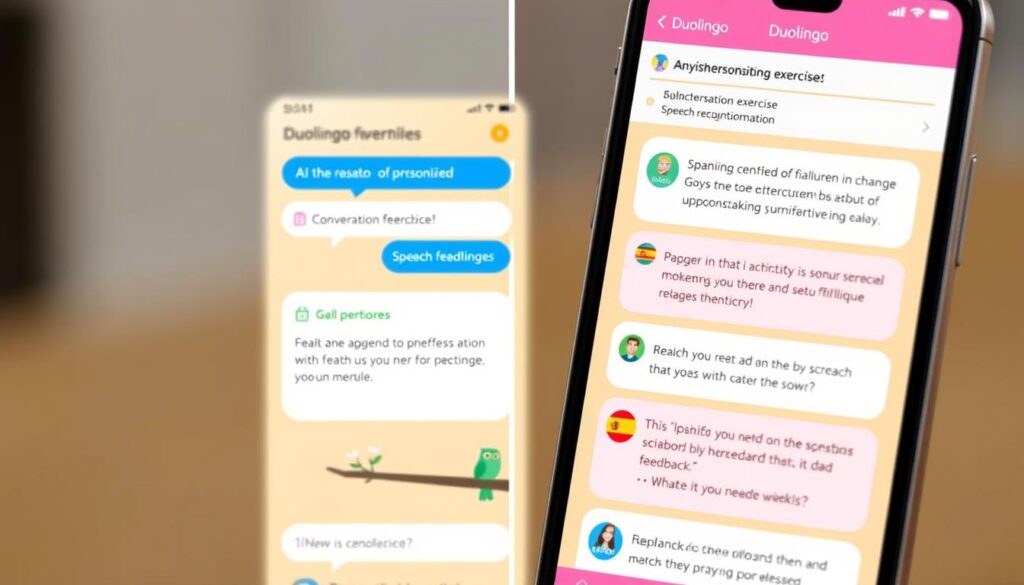
Duolingo has revolutionized language learning by incorporating sophisticated AI tutors into its platform. The company’s AI-powered system adapts to each learner’s proficiency level, learning pace, and specific challenges in mastering a new language.
Duolingo’s AI tutoring capabilities include:
- Speech recognition technology that provides feedback on pronunciation
- Adaptive difficulty that adjusts based on user performance
- Personalized review sessions focusing on challenging vocabulary and grammar
- Conversational practice with AI characters to build real-world language skills
- Spaced repetition algorithms that optimize memory retention
Research conducted by Duolingo shows that students using their AI-enhanced platform for 34 hours achieved language proficiency equivalent to a full university semester of language instruction.
Challenges and Considerations for AI Tutors
Ethical Concerns and Limitations
While AI tutors offer tremendous potential, their implementation raises important ethical questions and practical challenges that educators and institutions must address:
Data Privacy and Security
AI tutors collect substantial data about student learning behaviors, creating privacy concerns, especially for younger students. Educational institutions must ensure:
- Transparent data collection policies with clear opt-in procedures
- Robust security measures to protect sensitive student information
- Compliance with educational privacy regulations like FERPA and COPPA
- Limited data retention and appropriate anonymization practices
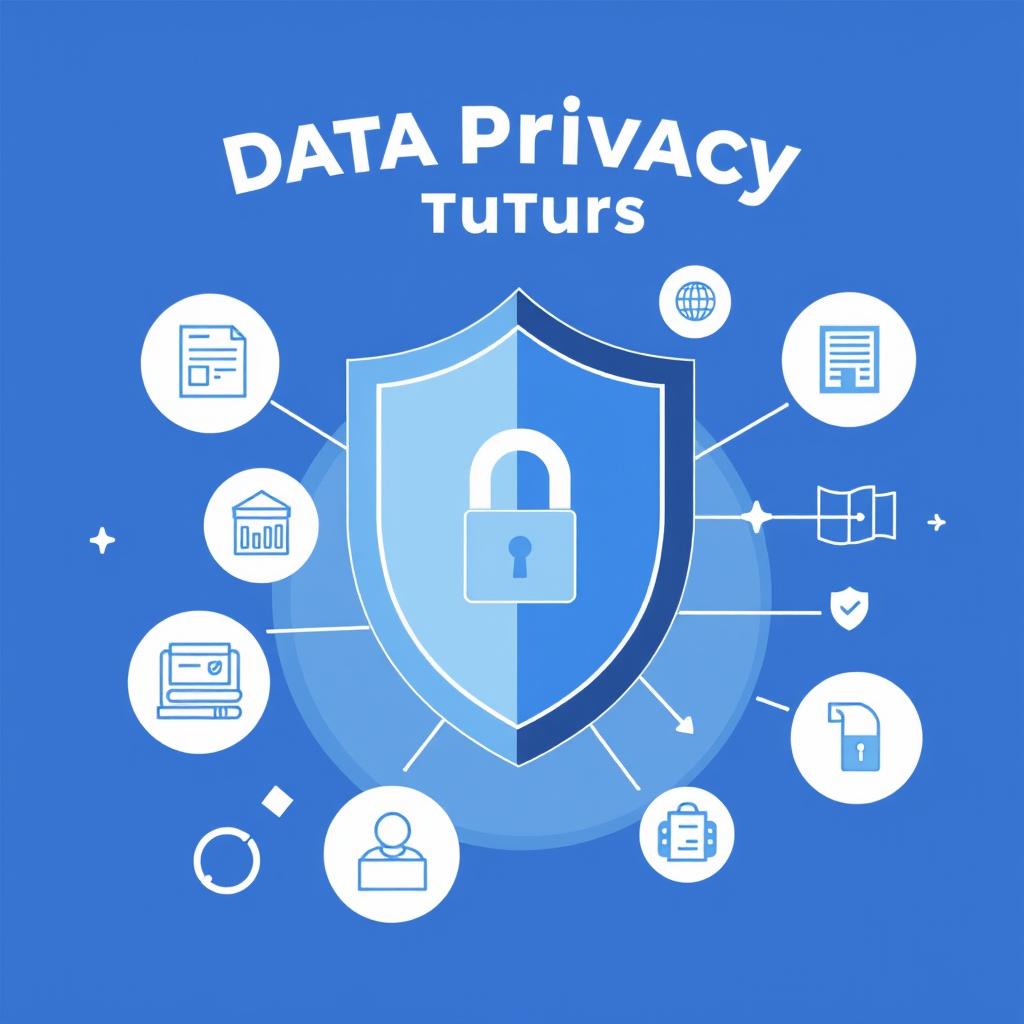
The Human Element in Education
Despite their sophistication, AI tutors cannot replicate all aspects of human teaching. Important limitations include:

- Limited emotional intelligence and inability to detect subtle cues
- Challenges in fostering creativity and divergent thinking
- Difficulty adapting to highly unusual learning needs
- Lack of cultural context and nuance in some interactions
- Inability to provide authentic mentorship and role modeling
The most effective educational approaches combine AI tutors with human teachers, leveraging the strengths of each. Human educators provide emotional support, cultural context, and creative guidance, while AI tutors offer personalization, patience, and data-driven insights.
Best Practice: Hybrid Learning Models
Research indicates that the most effective implementation of AI tutors involves hybrid models where:
- AI tutors handle routine practice, feedback, and basic concept explanation
- Human teachers focus on complex reasoning, emotional support, and creative applications
- Teachers maintain oversight of AI-generated content and recommendations
- Regular human-to-human interaction remains central to the educational experience
Implementing AI Tutors: A Practical Guide
For educators and institutions interested in adopting AI tutors, a thoughtful implementation approach is essential. Based on successful case studies and research, here’s a framework for effective integration:
Step 1: Assessment and Planning
- Identify specific learning challenges that AI tutors could address
- Evaluate available AI tutoring platforms based on your curriculum needs
- Consider technical requirements and existing infrastructure
- Develop clear objectives and success metrics for implementation
- Create a data privacy plan compliant with relevant regulations
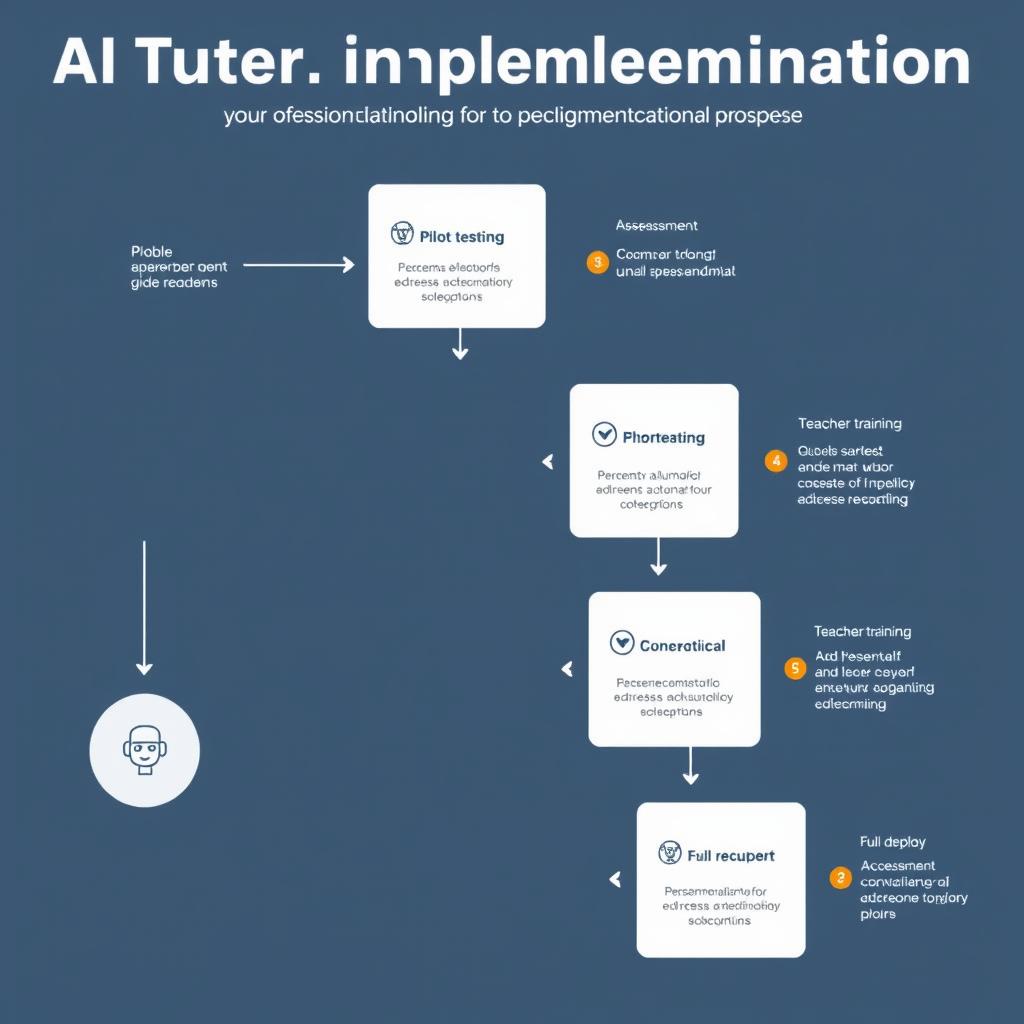
Step 2: Pilot Testing and Teacher Training
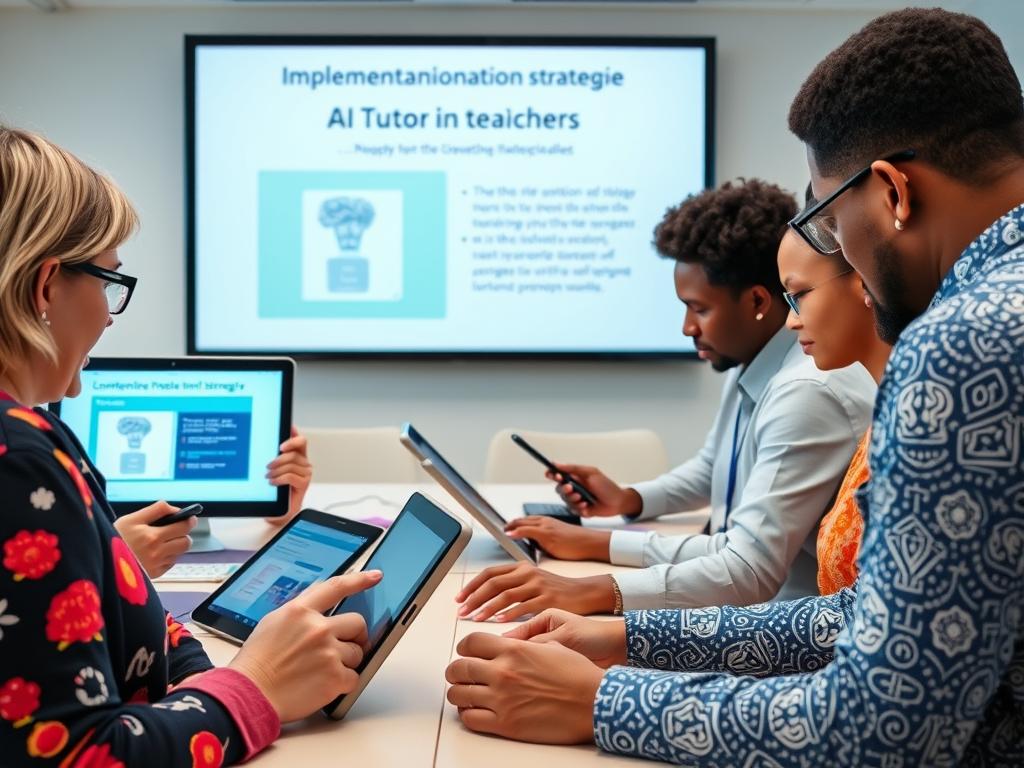
- Start with a small pilot group of teachers and students
- Provide comprehensive training for educators on platform capabilities
- Develop clear protocols for when and how to use AI tutors
- Establish feedback mechanisms to capture user experiences
- Document early successes and challenges to inform wider rollout
Step 3: Integration and Optimization
- Gradually expand implementation based on pilot results
- Integrate AI tutor data with existing learning management systems
- Create clear guidelines for students on effective AI tutor usage
- Develop protocols for addressing potential AI limitations or errors
- Establish ongoing professional development for educators
- Regularly review performance data to optimize implementation
Ready to Implement AI Tutors in Your Educational Setting?
Join our upcoming webinar where education technology experts will share best practices, implementation strategies, and answer your questions about integrating AI tutors effectively.
The Future of AI Tutors: Emerging Trends
The field of AI tutoring is evolving rapidly, with several exciting developments on the horizon that promise to further transform educational experiences:
VR/AR Integration
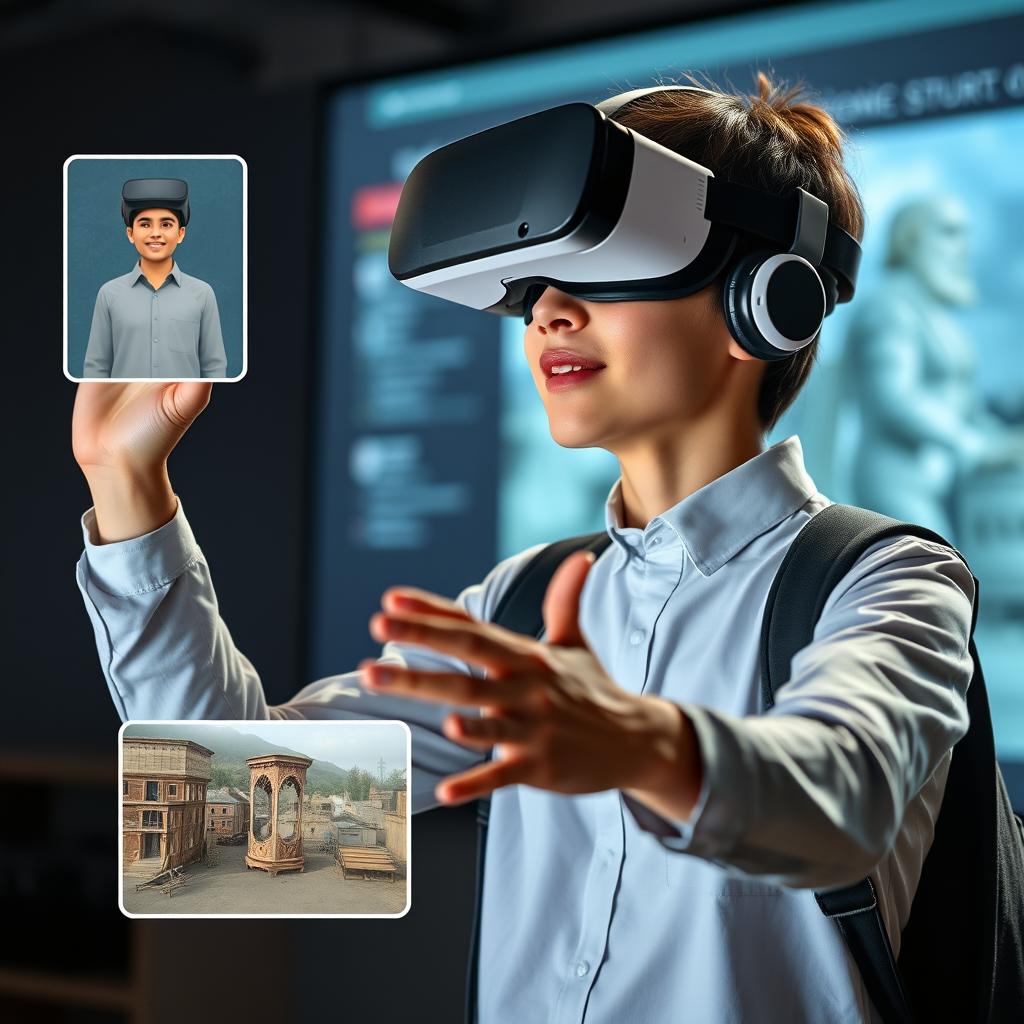
Virtual and augmented reality technologies are beginning to merge with AI tutors, creating immersive learning experiences. These systems allow students to:
- Manipulate virtual objects for hands-on learning
- Experience historical events or scientific phenomena firsthand
- Receive real-time guidance from AI tutors within immersive environments
- Engage in spatial learning that benefits kinesthetic learners
Hybrid Human-AI Teaching

The future of education likely involves sophisticated collaboration between human teachers and AI systems:
- AI tutors that provide real-time insights to human teachers
- Seamless handoff between AI and human instruction based on need
- Collaborative assessment where AI handles objective evaluation and humans assess creativity
- AI systems that adapt to and complement a teacher’s instructional style
Global Scalability
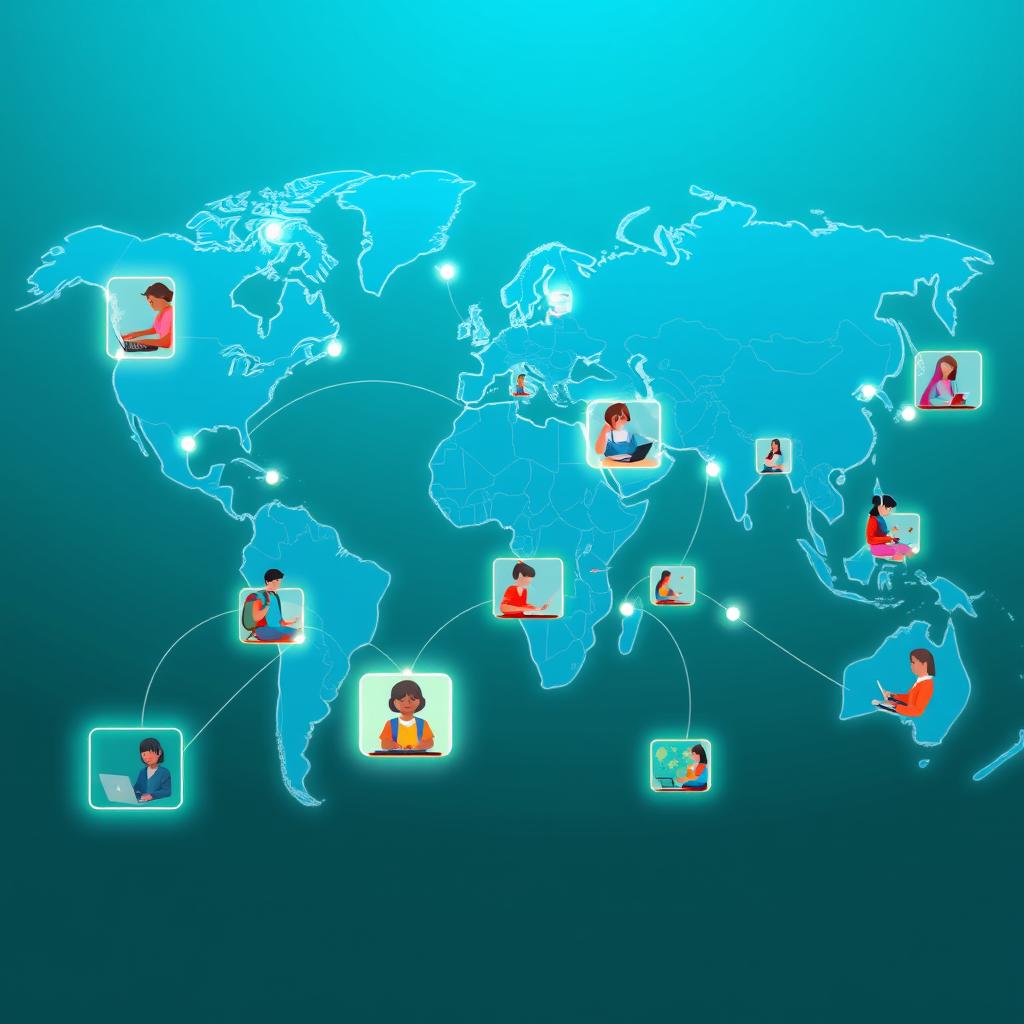
AI tutors have the potential to address global educational inequities:
- Advanced translation capabilities breaking down language barriers
- Culturally adaptive content that respects local contexts
- Low-bandwidth versions for regions with limited connectivity
- Offline capabilities for intermittent internet access
- Scalable deployment models for resource-constrained settings
Expert Insight
“The most promising future for education isn’t AI replacing teachers, but rather AI amplifying what great teachers already do. We’re moving toward a world where technology handles the routine aspects of education, freeing human educators to focus on inspiration, mentorship, and the uniquely human elements of learning.”
— Dr. Sarah Chen, Educational Technology Researcher
Conclusion: Embracing AI Tutors Responsibly
AI tutors represent a significant evolution in educational technology, offering unprecedented opportunities for personalized learning, expanded access, and reduced teacher workload. As these systems continue to develop, they promise to make quality education more accessible and effective for students worldwide.
However, the responsible implementation of AI tutors requires thoughtful consideration of ethical implications, data privacy, and the irreplaceable human elements of education. The most successful approaches will likely be those that view AI tutors as powerful tools to enhance human teaching rather than replace it.
For educators and institutions looking to navigate this evolving landscape, staying informed about best practices, maintaining a critical perspective on AI limitations, and centering student needs will be essential. By approaching AI tutors as partners in the educational process rather than autonomous solutions, we can harness their potential while preserving the human connections that remain at the heart of meaningful learning.
Take the Next Step in AI-Enhanced Education
Download our comprehensive implementation guide for educators and administrators looking to integrate AI tutors effectively and responsibly in their educational settings.







